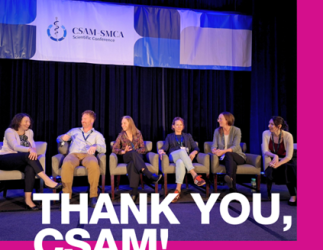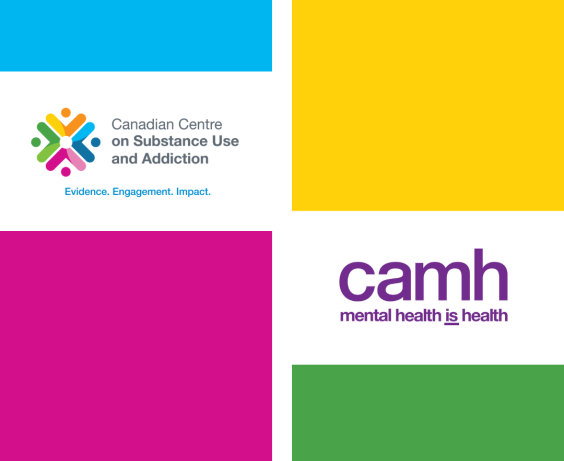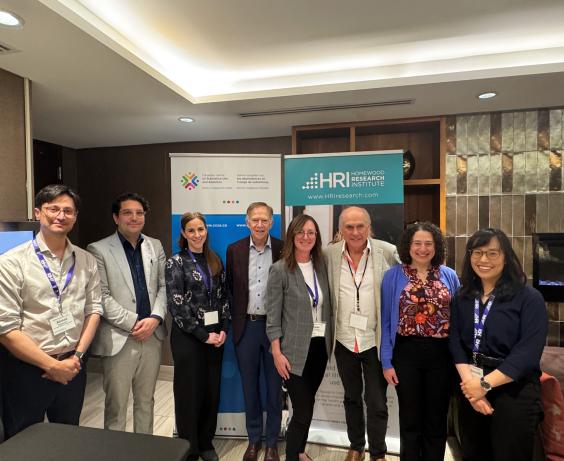Heading
Presentation at the Canadian Urban Institute
In early December, our CEO Dr. Alexander Caudarella presented our Small Cities Initiative as part of the panel discussion “Advancing Livable Communities: Safety, Connection and Community Life.” The panel took place during the State of Canada's Cities Summit 2025, hosted by the Canadian Urban Institute.

Recently at CCSA
Heading
CCSA at CSAM!
We had a big presence at the Canadian Society of Addiction Medicine (CSAM) conference in Montreal.
Highlights include:
- Staff members Kim Corace, Pam Kent, Justine Renard and Christina Katan presenting their recent work to this national audience.
- Board members Chris Cull and Scott Elliott making presentations as well.
- Our CEO Alex Caudarella teaching a workshop on motivational interviewing.
It was great to speak to so many attendees, both in our sessions and the CCSA booth, who were interested in learning more about the work we are doing.

Heading
Guidance, Tools and Resources
CCSA produces research-based publications, tools, and resources to support evidence-based decision-making on substance use health issues. Select your area of interest from the six categories below:
Heading
Substances
Delve into key resources on commonly used substances, such as alcohol, cannabis, opioids, stimulants and psychedelics. Learn about their effects, usage patterns, associated health and social consequences, and harm reduction considerations
Heading
Personal and Societal Impacts
Get insights on the personal and societal impacts of substance use and addiction , including gambling and impaired driving, and their effects on health, safety, and social well-being. Learn about effective prevention and harm-reduction strategies in various sectors.
Heading
Communities
Communities share common interests, values or goals, and interact with one another to build relationships and help networks. These materials support more inclusive, equitable, and community-informed responses to substance use and addiction. Dive into resources highlighting people with lived and living experience, stigma, sex- and gender-based analysis, Indigenous Peoples, and housing.
Heading
Treatment and Prevention
Explore medical, psychological, and social approaches aimed at helping individuals avoid or recover from substance use disorders. Get the facts on public health topics and learn about collaborative efforts to reduce stigma and promote more equitable, inclusive responses to substance use.
Heading
Youth
Learn about factors influencing substance use in young people, including childhood trauma and brain development, and get tools to support adult allies in leading meaningful, evidence-informed conversations with youth. Content promotes early prevention, harm reduction and supportive environments for youth up to age 25.
Heading
Substance Use and the Workplace
Substance use has a significant impact on the workplace, potentially affecting safety, productivity and employee well-being. Explore research on substance use in various industries. Resources support workplace leaders in building more supportive, stigma-free environments through practical strategies, improved approaches and initiative-taking education.

